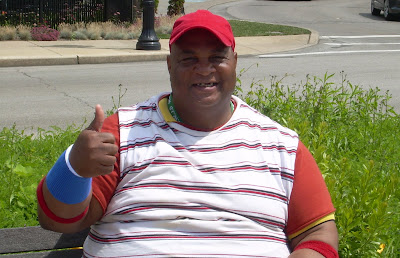
After devouring Colette’s 1920 novel
Chéri, André Gide sent the authoress a breathless note. “What intelligence, what mastery, what understanding of those least admitted secrets of the flesh!” Proust was also a fan.
If you have not read the novel, or its sequel,
The Last of Chéri, and saw only the new Stephen Frears adaptation, you might wonder what the fuss was about. The film is exquisitely produced, like all of Frears’ films (
The Queen,
Dirty Pretty Things), but the novel has lost much of its spirit and charm in the translation. Set in 1912 Paris,
Chéri is the story of Léa de Lonval (Michelle Pfeiffer), a retired courtesan who takes up with beautiful, spoiled playboy Fred (Rupert Friend), 19, nicknamed “Chéri” by Léa, whom he calls “Nounoune.” Their affair lasts six years, until Chéri’s mother, mercenary ex-courtesan Madame Peloux (heartily played by Kathy Bates), marries him off to the wealthy young Edmée (Felicity Jones).
Both Léa, who worries about her fading beauty, and Chéri, who cares little for anyone but himself, realize too late that theirs was a genuine, if impossible love. (Interestingly, Colette, at 42, later seduced her 16-year-old stepson, a case of life imitating art.) The movie’s Belle Epoque settings are lovely: art nouveau furnishings, ravishing costumes, enhanced by Darius Khondji’s fine cinematography. But it’s hard to look past the casting of Pfeiffer, possibly the last actress you would think of for a French courtesan. Pfeiffer emotes valiantly, but her slender California beauty and disturbingly unlined forehead do not suggest a voluptuous, aging concubine, or a Frenchwoman of any kind (though Frears also cast her as one in
Dangerous Liaisons). Friend, on the other hand, is perfectly cast as the narcissistic Chéri.
Screenwriter Christopher Hampton (
Dangerous Liaisons,
Atonement) preserves much of the book’s arch dialogue and adds a healthy dose of eroticism, but without the benefit of Colette’s ironic narration, the story seems trivial and unsympathetic. The movie, while aesthetically charming, does not demonstrate why this story is worth telling, much less why Colette said she had “never written anything as moral.”
 Picketers outside the Baldwin Filtration Plant on Fairhill Road. Ninety Cleveland water plant workers went on strike July 17 after failing to reach a new contract agreement with the city. The union is seeking a retroactive 2 percent pay raise going back to 2007.
Picketers outside the Baldwin Filtration Plant on Fairhill Road. Ninety Cleveland water plant workers went on strike July 17 after failing to reach a new contract agreement with the city. The union is seeking a retroactive 2 percent pay raise going back to 2007.



















